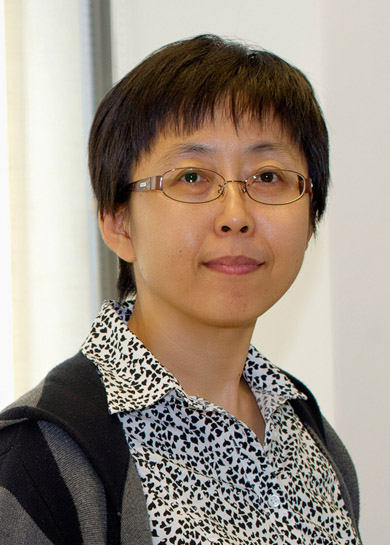Section A (5 representative publications in recent 5 years)
1. Chen L, Hong M, Luan C, Gao H, Ru G, Guo X, Zhang D, Zhang S, Li C, Wu J, Randolph PB, Sousa AA, Qu C, Zhu Y, Guan Y, Wang L, Liu M, Feng B, Song G, Liu DR & Li D. Adenine transversion editors enable precise, efficient A?T-to-C?G base editing in mammalian cells and embryos. Nat Biotechnol Epub. Jun15 (2023).
2. He X*, Zhang Z*, Xue J, Wang Y, Zhang S, Wei J, Zhang C, Wang J, Urip BA, Ngan CC, Sun J, Li Y, Lu Z, Zhao H, Pei D, Li CK, Feng B#. Low-dose AAV-CRISPR-mediated liver-specific knock-in restored hemostasis in neonatal hemophilia B mice with subtle antibody response. Nat Comm 13:7275. (2022).
3. He X, Urip BA, Zhang Z, Ngan CC, Feng B#. Evolving AAV-delivered therapeutics towards ultimate cures. J Mol Med. 99(5):593-617 (2021).
4. Wang J, Zhang C, Feng B#, The rapidly advancing Class 2 CRISPR-Cas technologies: a customizable toolbox for molecular manipulations. J Cell Mol Med. 24:3256-3270 (2020)
5. Zhang C, He X, Kwok YK, Wang F, Xue Y, Zhao H, Suen KW, Wang CC, Ren J, Chen GG, Lai BS, Li J, Xia Y, Chan AM, Chan WY#, Feng B#, Homology-independent multiallelic disruption via CRISPR/Cas9-based knock-in yields distinct functional outcomes in human cells. BMC Biology 16:151 (2018).
Section B (5 representative publications beyond recent 5 years)
1. He X, Tan C, Wang F, Wang Y, Zhou R, Cui D, You W, Zhao H, Ren J & Feng B#. Knock-in of large reporter genes in human cells via CRISPR/Cas9-induced homology-dependent and independent DNA repair, Nucleic Acids Res 44(9):e85 (2016).
2. Hu J, Lei Y, Wong WK, Liu S, Lee KC, He X, You W, Zhou R, Guo JT, Chen X, Peng X, Sun H, Huang H, Zhao H & Feng B#, Direct activation of human and mouse Oct4 genes using engineered TALE and Cas9 transcription factors, Nucleic Acids Res 42(7):4375-90 (2014).
3. Chia NY, Chan YS, Feng B*, Lu X, Orlov YL, Moreau D, Kumer P, Yang L, Jiang J, Lau MS, Huss M, Soh BS, Kraus P, Li P, Lufkin T, Lim B, Clarke ND, Bard F & Ng HH, A genome-wide RNAi screen reveals determinants of human ES cell identity. Nature 468: 316–20 (2010). (*Co-first authors)
4. Feng B, Ng JH, Heng JC, Ng HH., Molecules that promote or enhance reprogramming of somatic cells to induced pluripotent stem cells, Cell Stem Cell 4, 301-12 (2009).
5. Feng B, Jian, J, Kraus P, Ng JH, Heng JC, Chan YS, Yaw LP, Zhang W, Loh YH, Han J, Vega VB, Cacheux-Rataboul V, Lim B, Lufkin T & Ng HH, Reprogramming of fibroblasts into induced pluripotent stem cells with orphan nuclear receptor Esrrb. Nat Cell Biol 11:197-203 (2009).






